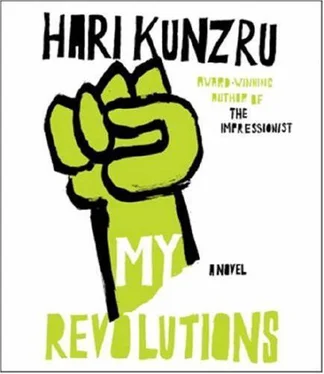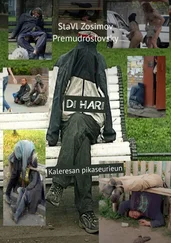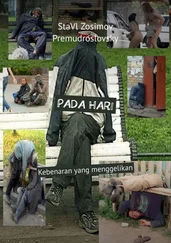didn’t sound like him.
“I think you have the wrong number.”
“Don’t be stupid about this.”
“I told you, you have the wrong number. Don’t call here
again.”
I slammed the phone down, trying to master the tide of adren-
alin rising through my body.
“Who were you talking to?”
“Just some guy. He thinks this is his friend’s place. He sounds
strange.”
“You were very aggressive with him.”
I shrugged noncommittally. Again, the phone rang. Miranda got
up to answer it. “Don’t,” I told her sharply. She put up her hands
in mock surrender. The phone carried on ringing. After a while it
clicked through to the answering machine.
“This is a message for Chris,” said the voice. “Listen, mate, don’t
piss about. You need to phone me. For your own good, you should
phone me.” He left a cell number.
“You’d think people would actually listen to the message,” said Miranda, vaguely. “It says quite clearly ‘Miranda and Michael Frame.’ ”
My throat was dry. I poured a glass of water from the filter pitcher. “Yes,” I said. “You’d think they would.”
After Miranda went to bed, I slipped out and drove over to the shop. God wasn’t there, so I was able to sit for a while in comforting darkness, huddling into my jacket and rubbing my hands as I waited for the gas heater to cut through the cold. I was thinking seriously about leaving. How far would I get if I made a run? If I went straight to the airport, would I be able to board a plane?
I switched on the ancient Anglepoise on the desk and sifted listlessly through a pile of Left Book Club volumes. The dreams of the thirties and forties; Spain and the hunger marches. They were fragile objects, those books, their yellowing pages flaky and brittle, about ten years away from dust. Soon, as I knew I would, I found myself taking another look through the unsorted sixties and seventies box. I opened copies of Socialist Worker to read about Grunwick and Blair Peach, events I’d missed because I was in Thailand. Why had God even bought all that stuff? As far as I knew, he was an old-fashioned Tory. Englishman’s home is his castle, the whole bit. I was about to put the box away when I found a copy of the International Times , which fell open to a collage of a jazz-age figure in a sweater and plus-fours operating a hand-cranked camera. The man’s head had been replaced by a fist. Out of the camera lens spilled a cornucopia of bodies and flowers and abstract forms. Rifles and feathers and halftone dots. Biafran children, Chairman Mao. I knew that image. It had been on a flyer someone had handed me on Portobello Road, the day I finally roused myself and walked out of Vicky’s basement:
FREE PICTURES
No politics but the politics of experience!
Toward a revolutionary reconstruction of society.
Construct zones of liberation, counter- institutions, alternative systems of exchange.
Reject the bankrupt logic of submission and domination.
Saturday Free Pictures 21 Albany Square London W11
Shoeless, I wandered down into Notting Hill. The streets were lined with decaying mansion houses, peeling and sooty, with rubbish piled up in their once-elegant porches. Here and there West Indian men sat out on the steps enjoying the weather, talking or slamming down dominoes. Gangs of wild children ran between the parked cars. On some streets, half the houses were empty, their boarded-up windows like sightless eyes. I sat in a pub for much of that afternoon, listening to the sounds of the street market winding down outside. The public bar was populated by old boys who sat silently smoking and watching their pints fall inch by inch in their glasses. The fruit machine chirruped the fake promise of money. I was backing Britain. We were all backing Britain. The good times were coming our way. If I didn’t leave immediately, I knew I’d end up another lost soul, my arse moistening the leatherette forever.
Out in the world, it was getting late. The light had softened and Portobello Road was carpeted with rotting vegetables. I wandered northward, ignoring the people who called out at me or stared at my bare feet. In side streets, music filtered out of upstairs windows and young white girls talked to black men in smart cars. In a quiet square I found myself outside a disused cinema, a shabby deco façade tacked on to a redbrick building that had probably once been a church meeting hall. The doors were covered with sheets of corrugated iron and a sign warned of dire penalties for trespassers. From the pavement the place
looked deserted. On the unlit marquee, the word FREE had been spelled out in red letters.
Clutching the flyer, I banged on the sheeting. There was no answer. I banged some more. Eventually, a voice on the other side asked who I was.
“My name’s Chris,” I said. “Is there a — a happening here?”
The person on the other side did something with bolts and padlocks. The door opened a crack and I stepped into a darkened foyer smelling of cigarettes and stale beer.
All I could see was a silhouette. Jacket. Curly hair sprouting from the sides of a peaked usher’s cap. “Who do you know?” he asked. “No one, really. This is it, right? Free Pictures?”
He thought for a while, examined me. “You’d better come in. Everyone’s on the roof. Watch your step, there are holes. Also rats.”
Underfoot the carpet was sticky. The usher, who’d completed his outfit with army boots and what looked like an old-fashioned floral skirt, shambled ahead of me into the auditorium, a murky, cryptlike space. The air was tinged with damp. From the ceiling, just visible in the gloom, hung an unlit chandelier, an ominous mass festooned with cobwebs, like a prop from a horror movie. The electricity was obviously borrowed from elsewhere; just above head height sagged runs of cable, looping round sconces, draped over the plaster cherubs on the little balcony. Here and there light fittings had been wired up, bare bulbs hanging down to brighten little circles of moth-eaten red plush. The usher took me behind the screen, where a narrow staircase led into a dusty gallery. From there we climbed a ladder out onto the flat roof.
In the afternoon sunlight, a young woman was reading from a typescript to a crowd of about thirty people, who lounged around on rugs and broken plush seats. She spoke with a seriousness accentuated by her extreme pallor and by her clothes, a shapeless man’s sweater and a headscarf that dragged her hair severely back from her scalp. It was an appearance that suggested a punishing lack of self-regard. “More,” she was saying, “is not the issue. We
have more cars and fridges, more summer holidays in Fascist Spain. In fact, we have more of everything except life and freedom.” She spoke about the pressure to compete, how it was destroying basic social formations. Atomized workers were convenient for capital, free of attachments to each other, to place, even to time.
As she spoke it dawned on me gradually that I recognized her. Eventually I was certain she was the girl I’d seen throwing the stone at Grosvenor Square. She looked haunted, as if she hadn’t slept for days. I thought she was beautiful. She sat down and was immediately succeeded by a guy with a messy Afro and a German accent, who told us it was no good to talk theoretically, or to make a politics on the basis of a theory — any theory whatsoever. That would just mean swapping one set of masters for another. It was time to throw everything up in the air, to live in a radically different way. Out of that would come a politics based on material conditions.
Someone handed me a joint. I found a place to sit where I could rest my back against the parapet wall and check out the girl, who was sitting with a group of friends, nervously jigging one foot up and down and smoking a cigarette. These people were wilder and more ragged-looking than student crowds, where you’d still see sports jackets, combed hair. Most political meetings I’d attended happened against a background of whispering and poorly masked boredom. This had a different atmosphere, intense and anxious. “Freedom begins with the self,” called out a woman from the floor, and the freedom she was speaking about seemed to be present up there on the cinema roof, a fierce astringent energy, a flensing away of the past.
Читать дальше












